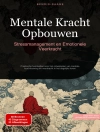In this book the broad, interdisciplinary theory of Triune Ethics Meta-theory is explored to demonstrate how it explains the different patterns of morality seen in the world today. It describes how human morality develops dynamically from experience in early life and it proposes that the methods in which humans are raised bring about tendencies towards self-protective or open-hearted social relations. When the life course follows evolutionary systems, then prosocial, open-hearted capacities develop but when the life course goes against evolutionary systems it should not be a surprise that self-focused values and behaviors develop such as violent tribalism, self aggrandizement and a binary orientation to others (dominance or submission). Many humans alive today exhibit impaired capacities in comparison to humans from small-band hunter-gatherer societies, the type of society that represents 99% of humanity’s history. TEM is rooted in ethical naturalism and points out how to optimizehuman moral development through the lifespan—toward the ethics of engagement and communal imagination.
Table des matières
Preface.- Chapter 1. Broadening the Scope of Moral Developmental Theory.- Chapter 2. Triune Ethics Meta-theory: Embodied Moral Development Based in Evolution, Anthropology and Neurobiology.- Chapter 3. Measuring Triune Ethics Orientations (with Sam Hardy).- Chapter 4. Early Experience and Ethical Orientation (with Tracy Gleason, Jennifer Burke Lefever, Lijuan Wang, Ying Cheng).- Chapter 5. Past Moral Action and Ethical Orientation (with Alexandra Thiel, Angela Kurth and Kallie Renfus).- Chapter 6. The Future of Moral Developmental Theory and Research.
A propos de l’auteur
Darcia Narvaez is Professor of Psychology at the University of Notre Dame, USA and publishes on moral development and education. Her most recent book is
Neurobiology and the Development of Human Morality: Evolution, Culture and Wisdom. She is a fellow of the American Psychological Association and executive editor of the Journal of Moral Education and writes a blog, Moral Landscapes, for
Psychology Today.












